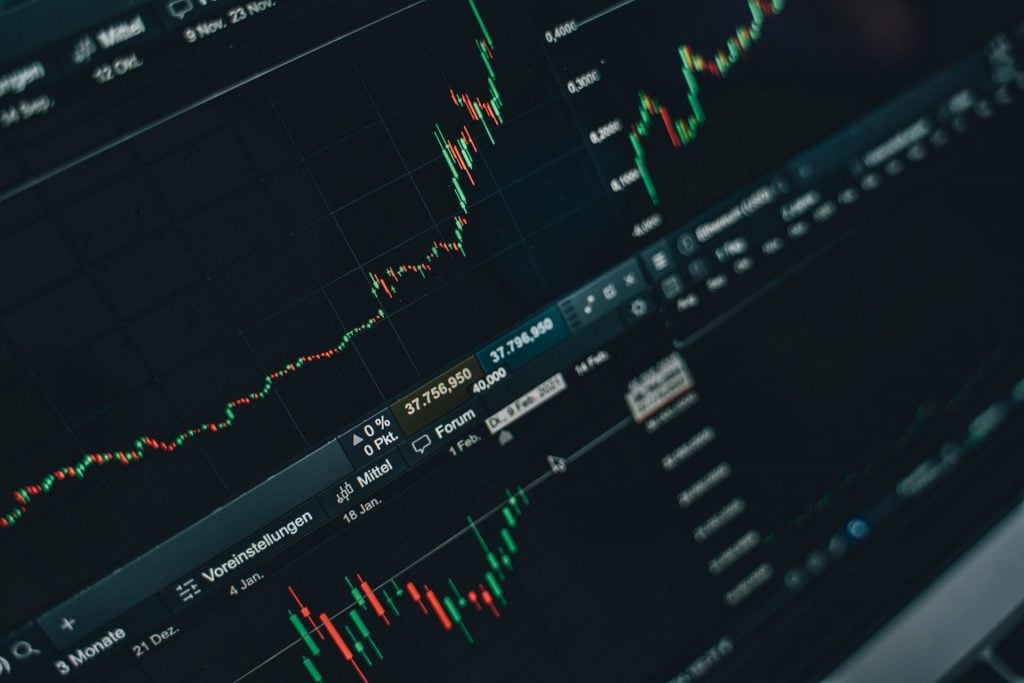
In America, shares of publicly-traded companies can easily be bought and sold through one of our major stock exchanges. But what if you want to invest in foreign stocks?
This article will show you how to invest in international stocks and the advantages of including foreign stocks in your portfolio.

Advantages of Investing in Foreign Stocks
With so many American companies to choose from, why might an investor sink their money into the foreign market?
The answer is that buying international stocks can provide surprising benefits compared to their domestic counterparts. Here are some of the advantages of foreign stocks:
Different Geopolitical Influences
Publicly-traded companies are influenced by political and social forces. This influence means that what happens in America can have something of a ripple effect across the market as a whole. For example, certain tax policies or leadership transitions can introduce volatility in the American stock market.
International stocks, by contrast, are not impacted by these same forces. This disconnect means that even if American stocks have been impacted by a domestic policy change or a localized emergency, foreign stocks can remain strong.
Greater Diversification
One of the clearest advantages to investment in foreign stock is the way that these shares bring additional diversification to your portfolio. Holding securities from multiple international markets will bring greater diversification than you can commonly achieve from domestic stocks alone.
Risks of Investing in International Stocks Foreign Stocks
It would be wrong to say that international stocks don’t come with some degree of risk. Some of the most common risks associated with foreign stocks include:
Currency Risk
International holdings can provide some degree of protection when the U.S. dollar weakens. But when the dollar gets stronger, that international stock can have a weaker performance. Investors can mitigate this with a balanced portfolio, but their foreign stock may still underperform when the dollar strengthens.
Geopolitical Risk
Earlier, we noted that international stocks are influenced by different geopolitical forces than domestic stocks. But that assertion cuts both ways. International stocks may be impacted by events that decrease the value of the positions you hold, while American stocks remain unaffected.
Lower Liquidity
Not every market has the same rules about when to trade stocks, which could make it harder for you to use your international shares to adjust your position. This means that you’ll have lower liquidity than domestic stocks or ETFs, which can be more easily bought and sold during trading hours.
Access to Information
Investors rely on research tools and the latest news to make decisions about when to buy or sell. For short-term investors, this data is crucial.
But gaining access to information about international stocks can be a real challenge, and you won’t always know if the data you’re receiving is up-to-date. This lack of information can make it harder to make trading decisions or even to know the precise value of your portfolio.
How to Invest in Foreign Markets
If you’re open to the opportunity and risks of the foreign market, here’s how to buy international stocks:
Foreign Direct Investing
You may consider investing directly in your desired international company. Some domestic stock brokers allow you to open a global investment account, though investors may also open an account in the country they’re seeking to invest in.
This process can be tricky, though, since investors will have to navigate currency exchanges, tax laws, and the ever-present danger of fraudulent brokers. Direct investing is perhaps best left to experienced investors and those who have the time and resources to navigate these waters.
Multinational Corporations (MNCs)
Investors may want to gain international exposure by taking a back-door approach. Some stocks are traded on domestic stock exchanges but receive significant revenue from international sales (consider companies like Coca-Cola or Disney).
This approach might be a way to get your feet wet, so to speak, when it comes to the international market. Just be aware, though, that investing in multinational corporations won’t help you achieve international diversity in your portfolio the way that purely international stocks can.
American Depository Receipts (ADRs)
Many foreign companies list themselves on domestic stock exchanges using a vehicle known as an American Depository Receipt (ADR). One of the most common examples is the Chinese eCommerce company Alibaba, whose 2014 IPO raised $25 million.
The advantage of ADRs is that they can be bought, sold, and traded on American stock exchanges like any other stock, which makes them ideal for investors who wish to invest in foreign stocks with minimal hassle.

Global Depository Receipts
A Global Depository Receipt (GDR) works a little differently from ADRs. GDRs are the result of depository banks issuing shares of foreign companies in international markets (typically Europe). Investors are able to purchase these shares, and many GDRs are specifically priced using U.S. dollars.
Though they’re not as immediately available as ADRs, you can still purchase a GDR from the London Stock Exchange, Luxembourg Stock Exchange, and the exchanges in Singapore, Frankfurt, and Dubai.
Global Mutual Funds
One of the easiest ways to invest in foreign stocks is through mutual funds. Some domestic stock brokers offer mutual funds containing international stocks, and these funds can be assembled to focus on particular industries and even nations.
Global mutual funds can even be tailored to your individual investment style. Some funds can be actively managed, while others can be passively managed or even designed to track an international market index (Global Index Funds).
However, compared to their domestic counterparts, global mutual funds have higher costs and fees, especially when relying on a fund manager to actively manage the fund.
Exchange-Traded Funds
Most investors are already familiar with exchange-traded funds or ETFs. Many stockbrokers offer ETFs that already contain an assembly of international funds, reflecting different levels of market capitalization, geographic region, and industry.
The disadvantage is that investors don’t have as much input on the companies represented by these ETFs, which may deter those looking to invest in particular sectors or companies.
According to CNBC, global ETFs are enjoying enormous success, with roughly half of ETF inflows going to international companies.
This trend means that investors will likely continue to see ETF options that allow them to invest internationally, and you may also see more choices spring up now that domestic brokers are seeing the shift to global stocks and ETFs.
Things to Consider When Buying Foreign Stocks
Now that you know how to invest in foreign stocks, what else should you consider before making your move?
The greatest factor you should consider is cost. International trading will invariably come with higher fees and costs than their domestic equivalents. Plus, there are some specific situations that you’ll need to factor into your investment decision, such as:
- Currency conversions
- Transaction costs (e.g., your broker’s commission, expense ratios, etc.)
- Foreign taxes on dividends paid by international stocks
Always talk to your stockbroker before making a major decision. Those willing to navigate the world of foreign stocks can enjoy the benefits we discussed above, but these costs should always be weighed prior to making a final decision.

Get 30 Days of Free Stock Picks
We hope you’ve enjoyed this instructional piece on how to buy foreign stocks. Did you know that Gorilla Trades has more great content like this? Our members get access to even more educational content, research tools, and more.
When you sign up for a free trial, you’ll get 30 days of daily stock alerts that you can use to evaluate your portfolio and see what the future can bring.
